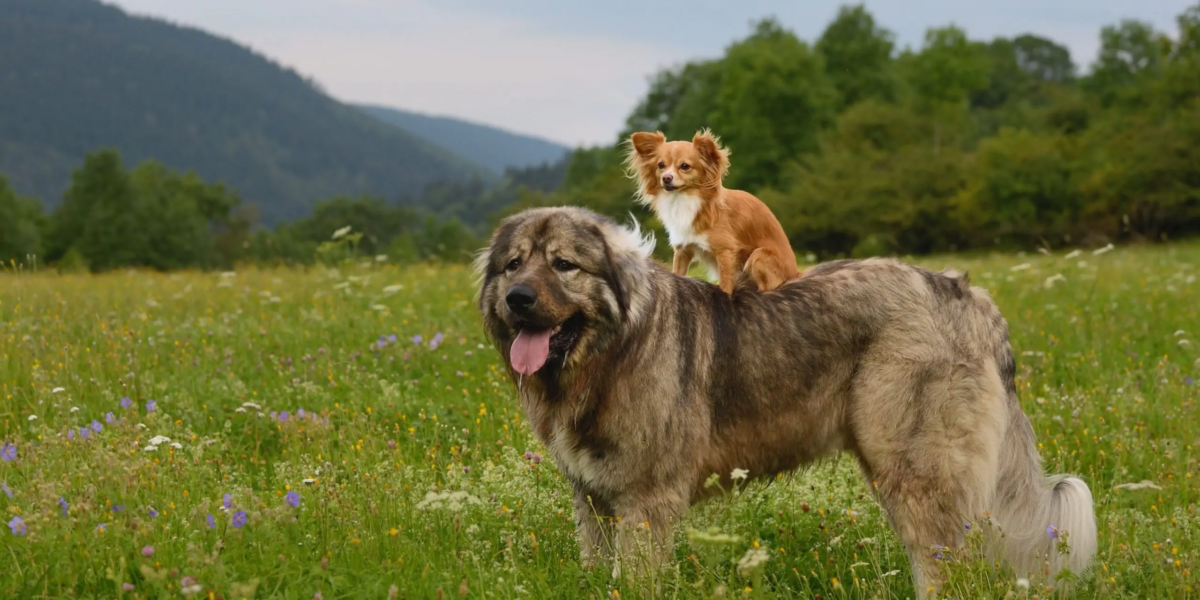Do you wonder who is really in charge at home? Are you the alpha to your dog, or is your furry friend calling the shots? Take this quiz to find out where you stand in the hierarchy of your household. Flunk any of the questions, and you may be sending your dog a subtle message that they are the ones in charge. If you fail them all, it’s time to make some changes quickly!
1. Does your pet get out of your way when you walk?
Alpha dogs don’t move out of the way for subordinates. Rank has its privileges, and one of them is staying put. When walking across the floor, don’t step over or around your dog. Instead, gently shuffle your feet through them to make them move out of your way. Failing to do so sends the message that your dog is in charge.
2. Who has the best seat in the house?
Your dog should yield their spot when you go to sit on the couch, or even better, they shouldn’t be allowed on the couch at all. Alpha dogs can sit wherever they please. If your dog growls at you when you try to sit on the bed or couch, it’s a sign that they think they are the ones in charge.
3. Who walks through the door first?
The pack leader leads the way, including going through doors. Don’t allow your dog to barge through the door ahead of you. By doing so, you’re giving them the message that they can be the leader.
4. Who eats first?
Alpha dogs eat first, while subordinates eat later. If you schedule feed your dog, make sure you eat before they do, not the other way around. Following this rule subtly conveys that you, not the dog, are in charge.
5. Is your dog obedience trained?
A dog that refuses to obey commands may think they don’t have to because they believe they are the boss. Obedience training can be an excellent way to reclaim your role as the pack leader.
6. Who owns the food, toys, and treats?
All the household possessions belong to the alpha dog, who permits others to use them. If your dog doesn’t let you take away their bone or growls when you try to remove their food bowl, they consider these items theirs, not on loan from you. In their mind, they are the boss.
7. Who walks whom?
Once again, alpha dogs lead the way. If your dog pulls you down the street like you’re waterskiing, they believe they are the leader and can go where they please.
8. Can you groom your pet?
If your dog growls or protests while being groomed or having their nails clipped, they may consider themselves the boss. Not only should all the toys and items in the house be yours, but every part of their body should also be accessible to you. You should be able to handle their tongue, ears, toes, and more, as they have no say in the matter. If they resist, it means they think they can have a say.
9. Who wins staring contests?
Direct eye contact in the dog world is a threatening gesture. Your dog should not want to make eye contact with you when you lock eyes. Submissive dogs will turn their heads away.
10. Does your pet growl or snap at you?
Growling and snapping are signs of dominance and should never be tolerated unless the dog is ill or injured. Aggression towards humans is a big no-no, and the alpha leader should not tolerate any attempts at rebellion.
Frequently Asked Questions
Q: How can I establish myself as the alpha to my dog?
A: Establishing yourself as the alpha requires consistent training, setting boundaries, and enforcing rules with love and patience. Obedience training and clear communication will help your dog understand their place in the pack hierarchy.
Q: Can any breed be an alpha dog?
A: Yes, any breed can display alpha dog behavior. It is important to understand your individual dog’s personality, temperament, and training needs to ensure a balanced and harmonious relationship.
Q: What if my dog shows signs of dominance?
A: If your dog demonstrates dominant behavior, it’s essential to address it promptly. Seek professional guidance from a certified dog trainer or behaviorist to help you establish a healthier dynamic with your furry companion.
Conclusion
Being the alpha to your dog is crucial for a balanced and happy relationship. By following these guidelines, you can establish yourself as the leader and ensure that your dog understands their place in the pack. Remember, consistent training, clear communication, and love are the foundations of a strong bond between you and your canine companion. So take charge and enjoy a fulfilling partnership with your four-legged friend!
For more information on building a strong bond with your dog, visit Pawsoha.
